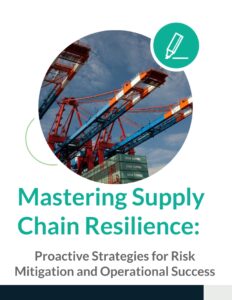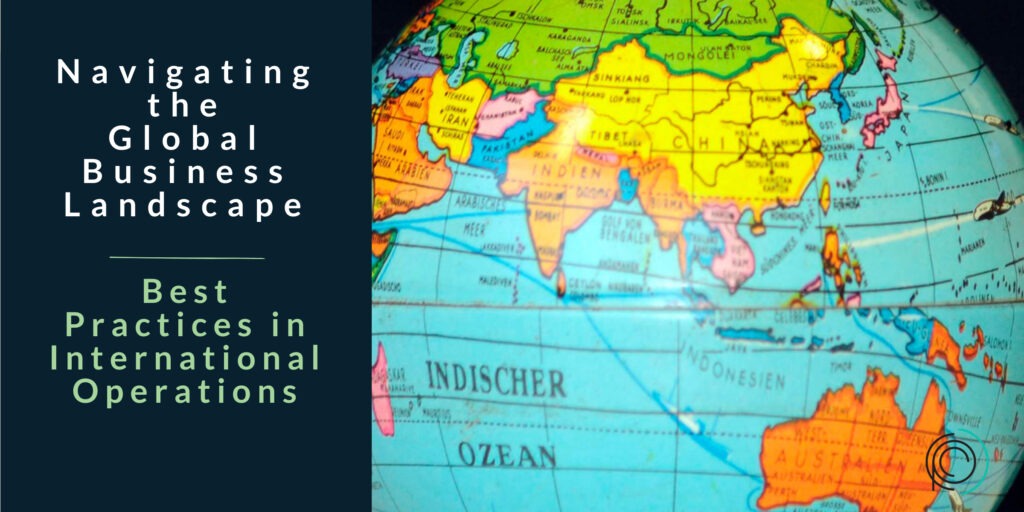Unlocking Global Potential: Essential Best Practices for Seamless International Expansion
In the modern era of globalization, businesses have unprecedented opportunities for international growth and expansion. Whether you oversee a small startup or a large corporation, taking your operations global can be a worthwhile strategy for long-term success. However, the complexities of global markets, diverse cultural expectations, and regulatory hurdles must be considered before making the leap. In this blog, we will explore some essential best practices for managing international operations, so that your company can achieve its goals and build a strong global reputation.
The top 5 things you should consider…
- Cultural Awareness
One of the most vital aspects of global business operations is cultural awareness. Understanding the differences in business customs and practices across cultures can help you avoid misunderstandings, miscommunications, reputational damage, and other costly mistakes. It is recommended to spend time researching the customs and social norms of your target market before entering the market. Attempt to learn the local language and take advantage of cultural training courses available in your area; spend some time with locals of that community.
Conduct thorough market research, before launching operations in new markets, it’s critical to gain a deep understanding of the local business environment. Conducting thorough market research can help you avoid costly missteps and adapt your products or services to match the needs of the local population. This research should include analysis of market size, competitor landscape, legal factors, and any relevant socio-economic factors that impact consumer behavior.
- Legal and Regulatory Compliance – International trade presents businesses with a web of regulations, licenses, forms, and approvals that they are expected to comply with. Different countries have various legal systems, and you will need to ensure you abide by all relevant laws and regulations. Understanding the legal and regulatory compliance requirements in your target market will make you less susceptible to unpleasant surprises while minimizing the risk of costly penalties, legal fees, or reputational damage.
- Develop a global mindset
Every country has its own unique business culture and expectations. Developing a global mindset is essential for adapting to new environments and enabling effective communication across borders. Global mindsets help develop cultural understanding, fosters empathy and respect towards individuals with different world views or work practices, while avoiding cultural faux-pas that could impact the business negatively. This can be achieved by providing global training and support to employees, cultivating a diverse and inclusive workplace, and creating cross-functional teams to collaborate towards global goals.
Strategic Planning – Strategic planning is key to success in any business venture. While it’s essential to have a plan for your global expansion, it’s equally important to be flexible and responsive. As a business leader, you must seek out new potential opportunities, make decisions quickly, and adjust your plans accordingly based on market trends and other factors. Having a flexible plan in place will help you stay nimble and agile and respond to changes in the market and customer demand.
- Build a strong local network
One of the key factors in successful international expansion is building strong relationships with local partners, suppliers, and customers. Identifying local partners who can help you navigate the new market, provide local insights and make valuable introductions can be critical in gaining traction in the target region. Building a reputation through local networks will establish a strong foundation for long term business relationships.
Partner Selection; it’s necessary to conduct thorough due diligence before entering into partnerships. Partnering with the wrong individual or organization can damage your business’s reputation, leading to losses in productivity and revenue. It’s critical to research a potential partner’s reputation, background, and experience. The partnership must identify adverse risks and have a robust communication and conflict resolution plan in place.
- Ensure effective communication
Communication plays a significant role in managing international business operations. It involves both language understanding and cultural context. Effective communication is vital to coordinate with remote teams, build trust with clients, and prevent misunderstandings or disputes. By investing in language training, cultural exchange trips and regularly scheduled international meetings with remote teams, business owners can often prevent misunderstandings and foster trust with crucial stakeholders.
Talent and Structure; organizing and structuring the team for international business operations is a significant task. It’s recommended to identify a team with the right combination of experience, talent, and cultural diversity. The team should be composed of individuals with varied backgrounds who add different perspectives and ideas, resulting in a broader range of solutions.
Adapt to emerging technologies; rapid technological advancements have transformed the way business is done globally. As companies go global, embracing emerging technologies is no longer an option, but a necessity. For instance, cloud computing, marketing automation tools, instant messaging platforms, and video conferencing apps have extended the reach of businesses globally. Leveraging technology solutions like these could help build efficient operations, cut down costs, speed up market entry, and create better communications with customers and partners.
Successfully navigating the global business landscape requires careful planning, execution, and strong cultural sensitivity. By following these best practices for international operations, you can set your company up for success and avoid common mistakes. Market research, building local networks, fostering a global mindset, effective communication, and adapting to emerging technologies are just some practical ways to establish solid global operations. By paying attention to such ideas, businesses can make a smart entry into the global market with better preparation and readiness for success.
Careful planning is the key to entering foreign markets, if you would like to discuss how you can take your company globally, book a consultation today.







